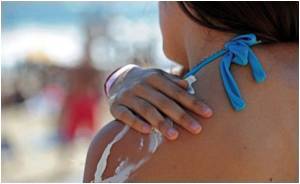
Ivy nanaoparticles, according to Zhang, can be used in many breakthrough applications in items such as military technologies, medical adhesives and drug delivery, and, now sun-block.
"The discovery of ivy nanoparticles' application to sunscreen was triggered by a real need. While hearing a talk at a conference about toxicity concerns in the use of metal-based nanoparticles in sunscreen, I was wondering, 'Why not try naturally occurring organic nanoparticles?'" said Zhang.
Zhang speculated the greenery's hidden power lay within a yellowish material secreted by the ivy for surface climbing.
The properties of the nanoparticles in the secretion create the ability for the vine leaves to hold almost 2 million more times than its weight.
It also has the ability to soak up and disperse light, which is integral to sunscreens.
Advertisement
"Titanium dioxide and zinc oxide are currently used for sunscreen for the same reason, but the ivy nanoparticles are more uniform than the metal-based nanoparticles, and have unique material properties, which may help to enhance the absorption and scattering of light, and serve better as a sun-blocker," he added.
Advertisement
Unlike, metal-based sunscreens used today that can pose health hazards, ivy nanoparticles exhibit better biocompatibility with humans and the environment.
The team's studies indicate that the ivy nanoparticles were less toxic to mammalian cells, have a limited potential to penetrate through human skin, and are easily biodegradable.
Sunscreens made with ivy nanoparticles may not need to be reapplied after swimming.
That's because the plant's nanoparticles are a bit more adhesive so sunscreens made with them may not wash off as easily as traditional sunscreens.
And while sunscreens made with metal-based nanoparticles give the skin a white tinge, sunscreens made with ivy nanoparticles are virtually invisible when applied to the skin.
Source-ANI









